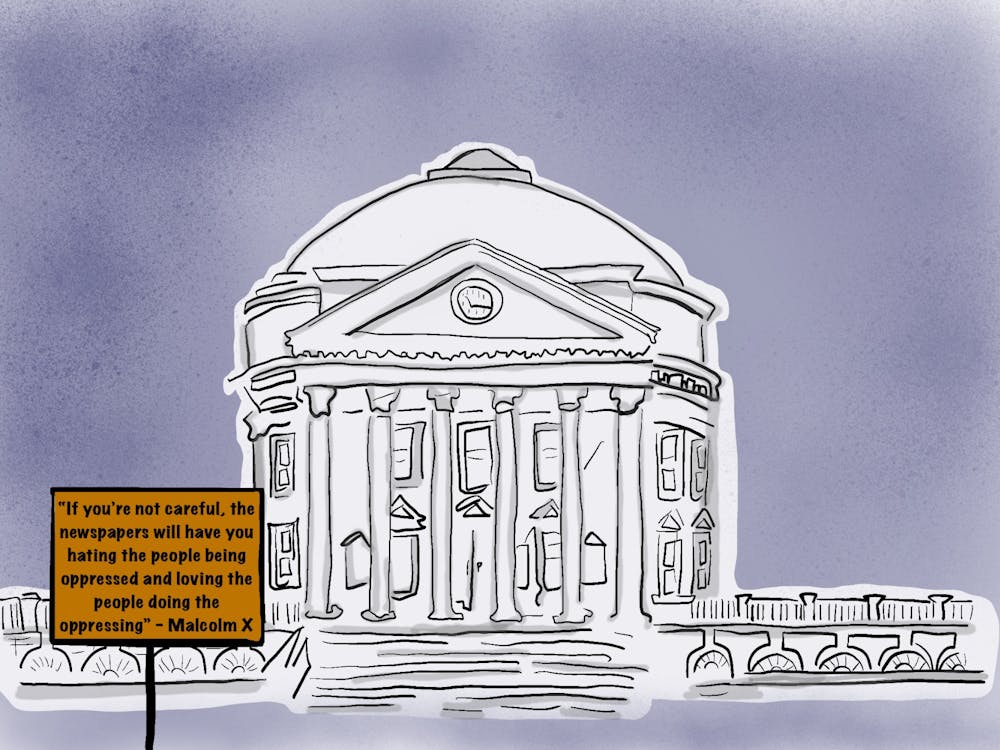WE'VE ALL seen "I stand with Planned Parenthood" status updates on Facebook in the past week. These statements are not about abortion or being pro-choice; they refer to recent legislation passed in the House of Representatives to cut Title X of the Public Health Service Act, a government program that provides family planning aid. Called the Pence Amendment, this legislation would stop Planned Parenthood from receiving any federal funding. This amendment is an attack on women's rights and access to basic health care, and therefore should not be passed into law.
The Pence Amendment prohibits any federal funds, including Medicaid, from going to Planned Parenthood. At first this may seem more like an attack on abortion rights than women's basic health care rights. But the truth of the matter is that federal funding for abortions already is illegal, and has been since 1976 due to the Hyde Amendment. Only three percent of services provided by the organization are abortion services, showing that the women most affected by the Pence Amendment are not those seeking abortions but instead women that rely on Planned Parenthood for basic health services. According to Cecile Richards, President of Planned Parenthood, "One in five American women has received care from a Planned Parenthood health center during her lifetime, and last year three million patients came to one of our more than 800 health centers." These women receive routine pelvic and breast exams, testing and treatment for sexually transmitted infections, contraception and prenatal care. None of these services are controversial; indeed, they are necessary for the health of women. Yet the Pence Amendment cuts federal funding for these essential programs.
This de-funding of Planned Parenthood would not close down all Planned Parenthoods and its affiliates across the country. A significant portion of the organization's funding comes not from government money but instead from individual private donors and larger donors such as the Bill & Melinda Gates Foundation and the Susan Thompson Buffett Foundation. Clearly, Planned Parenthood will not go out of business due to a lack of federal funds. What is worrisome is that under this new legislation, women and men who rely on Medicaid would no longer be able to utilize Planned Parenthood's services, including cancer screenings and STI testing and treatments. Under this legislation, 48 percent of Planned Parenthood patients would be cut off from services; this is about 1.4 million women, men and adolescents who rely on this organization for basic health care.
The Pence Amendment is part of a larger spending bill currently being debated by Congress. Representative Mike Pence, R-Ind., who created the amendment, and other proponents argue that Planned Parenthood receives $363 million per year from the federal government and that cutting this funding would help alleviate the deficit. Supporters of Planned Parenthood, however, do not believe that these actions will alleviate the deficit at all. Instead, the organization has argued that the bill would "serve to cut jobs for important community health providers, further stretch the services of government health agencies who will begin turning away those who would otherwise be served by Planned Parenthood health centers, allow for a decline in public health as more individuals begin to bypass health care they can no longer afford," among other things. Other arguments against the bill hold that cutting funding for Planned Parenthood will actually increase the number of unintended pregnancies, which would further increase entitlement spending and ultimately increase, not reduce, the deficit.
In a recent article in The Cavalier Daily, "Bill could hurt center," David Nova, vice president for Planned Parenthood health systems, espoused these views. Nova warned that though the Charlottesville center would stay open, many who depend on Medicaid would no longer be able to use the center's services. The passage of this legislation undoubtedly would have a negative effect on those in our own community who rely on Planned Parenthood for a wide array of health services. Moreover, the actual effect on the deficit is unclear, and more research must be done to truly understand the possible aftermath of such legislation.
What is quite clear, however, is that this amendment is a dangerous one for countless low-income men and women who rely on Planned Parenthood for essential health services. Cutting all federal funding, including Medicaid, to an organization that provides contraception, prenatal care, and testing and treatment for sexually transmitted infections seems more like an attack on Planned Parenthood and its patients than a sound plan to cut the deficit. Hopefully, when the Senate votes on this legislation Monday, it will choose to "stand with Planned Parenthood."
Claire Shotwell's column appears Mondays in The Cavalier Daily. She can be reached at c.shotwell@cavalierdaily.com.




